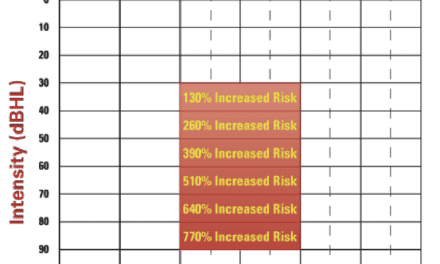 Evanston, Ill — Listening might seem like a passive activity, not a skill. You have ears, therefore, you listen. But it’s not that simple — at any age.
Evanston, Ill — Listening might seem like a passive activity, not a skill. You have ears, therefore, you listen. But it’s not that simple — at any age.
Northwestern University has launched a Listening and Learning Clinic on its Evanston campus to help children and adults tune up their hearing. Northwestern clinicians will teach people to sharpen their listening skills through special training that alters the way the brain processes sound and enhances hearing and understanding.
“We wanted to address the pervasive social problems that accompany poor listening skills,” says Nina Kraus, clinic founder. About 10% of children struggle with listening and reading problems. Many older adults have trouble hearing in noisy environments, a problem that increases as people age and is triggered by changes in the brain’s ability to transcribe sound as well as high frequency hearing loss.
The treatment programs at the new clinic are based on the latest scientific research—some of it from Kraus’ lab—and the expertise of scientists and clinicians who specialize in hearing, language and learning. Knowledge from these three specialties is usually not integrated within the same treatment program, said Kraus.
At the clinic, Sumit Dhar, Patrick Wong and Steve Zecker also are leaders in neurobiological research that examines the relationship between the brain and listening, learning and language. They are associate professors in communication sciences and disorders.
Delayed language development in children may indicate a listening problem. Scientific studies show that some children’s brains are less efficient at using auditory information or processing sound, Kraus said. That may evolve into a learning problem as children grow older. The clinic will scientifically monitor the results of its work with clients to assess what strategies work and for whom.
Children who enroll in the program will undergo a broad assessment of perceptual, language and learning abilities. They will then participate in reading and auditory training in one-on-one sessions with a clinician and use a computer program three times a week.
Adults will undergo a full hearing evaluation to determine their needs. Based on the results, the clinic staff develops an auditory training program designed to maximize hearing and listening abilities, either with or without a hearing aid. One component will use a computer program that simulates challenging listening conditions to train clients to focus their hearing to listen effectively. This training also promotes structural and functional changes in the brain that can make listening and hearing easier.
The clinic will launch its first 10-week program September 15. Space is limited. For more information, call (847) 491-3165 (adult services) or (847) 467-0776 (pediatric services), or visit the clinic’s website at www.northwestern.edu.
SOURCE: Media Newswire



